ROLLING AWAY THE STONE
Religion in North America
Catherine L. Albanese and Stephen J. Stein, editors
ROLLING AWAY THE STONE
Mary Baker Eddys Challenge to Materialism
Stephen Gottschalk

Much primary material for this work has been drawn from The Mary Baker Eddy Collection and The Mary Baker Eddy Library. Any opinions expressed in this book are solely those of the author and are not endorsed by The Mary Baker Eddy Collection or The Mary Baker Eddy Library.
The author is grateful to the Rare Book and Manuscript Library at Columbia University for permission to quote from their collection of the New York World Papers.
This book is a publication of
Indiana University Press
601 North Morton Street
Bloomington, IN 47404-3797 USA
iupress.indiana.edu
Telephone orders 800-842-6796
Fax orders 812-855-7931
Orders by e-mail
First paperback edition 2011
2006 by Stephen Gottschalk
All rights reserved
No part of this book may be reproduced or utilized in any form or by any means, electronic or mechanical, including photocopying and recording, or by any information storage and retrieval system, without permission in writing from the publisher. The Association of American University Presses Resolution on Permissions constitutes the only exception to this prohibition.
 The paper used in this publication meets the minimum requirements of the American National Standard for Information
The paper used in this publication meets the minimum requirements of the American National Standard for Information
SciencesPermanence of Paper for Printed Library
Materials, ANSI Z39.48-1992.
Manufactured in the United States of America
The Library of Congress catalogued the original edition as follows:
Gottschalk, Stephen.
Rolling away the stone: Mary Baker Eddys challenge to materialism / Stephen Gottschalk.
p. cm.(Religion in North America)
Includes bibliographical references and index.
ISBN 0-253-34673-8 (hardcover : alk. paper)
1. Eddy, Mary Baker, 18211910. 2. Materialism. I. Title. II. Series.
BX6995.G68 2005
289.5092dc22
2005014174
ISBN 978-0-253-34673-5 (cl. : alk. paper) ISBN 978-0-253-22323-4 (pbk. : alk. paper)
2 3 4 5 6 16 15 14 13 12 11
To Mary and Jennie
Glory be to God, and peace to the struggling hearts! Christ hath rolled away the stone from the door of human hope and faith, and through the revelation and demonstration of life in God, hath elevated them to possible at-one-ment with the spiritual idea of man and his divine Principle, Love.
Mary Baker Eddy, Science and Health with Key to the Scriptures
Contents
Foreword
A certain sadness accompanies the appearance of this volume by Stephen Gottschalk, who struggled with illness and died while engaged in the last stages of revising his manuscript in preparation for its publication. During the difficult weeks of his illness prior to his death, he persisted in and completed the task, assisted by his wife, Mary. We regret that Stephen Gottschalk will not be present to engage the readers of his book and to receive the positive responses we anticipate for this volume.
Gottschalk, an intellectual historian par excellence, was uniquely positioned as a Christian Science insider to interpret the historical development of the religious tradition. In fact, not since the late Robert Peel, also a Christian Scientist, has any insider been better equipped to interpret the religious thought of Mary Baker Eddy. Moreover, the project of taking Eddy seriously as a theologian cannot be overrated. This volume cuts through and rolls away a number of barriers beyond the one to which its title alludes. It takes seriously the theological production of an individual outside the well-groomed tradition of professional Protestant theologizing, an individual with only a modicum of formal education, and a woman at that.
From the point of view of Christian Science theologizing itself, this book is decidedly revisionist. A few years ago the directors of the Mother Church countenanced the publication of a book that more or less deified Eddy. By doing so, the church obtained millions of dollars when the work appeared in print. In the context of that event and of the theological stance that it apparently represented for some in the church, Stephen Gottschalks new book is a timely polemical intervention. It points to Christian Sciences antimaterialist roots in the theology of its founder. In fact, according to Gottschalk, Mary Baker Eddy identified the primary error of the Christian tradition with belief in materialism and the corollary (false) judgment that God created a world in which mortality and materialism were essential elements. She declared that misunderstanding to be destroyed by the birth, healing ministry, and resurrection of Jesus. She thought that the medical, scientific, and ecclesiastical spheres of her day were dominated by that basic theological misunderstanding. For that reason the church she founded rested on her antimaterialist views.
With its years of research into Eddys writings, her historical context, the persons who surrounded her and opposed her, and the scholarly literature that deals with her and Christian Science, Gottschalks work provides a searching study of the last two decades of Eddys life. He has focused his attention on the efforts she made during those years to ensure the centrality of her antimaterialist views in the church she founded. Although those years were a time of retirement for her, she felt forced to move from one controversy to another. In these circumstances she demonstrated the strength of her person and her ideas. In emphasizing these themes, Gottschalk initially focuses on the Next Friends suit in 1907, a planned effort by her critics to discredit her and take control of her substantial assets. Indeed and ironically, the effort even involved her only son, Georgelong separated and alienatedwho joined in the attack. In this context, the Next Friends suit provides Gottschalk an occasion to insist on the theme of the atheism of matter, which is a key theological reading in the volume. That episode also provides an excellent measure of the stature that Eddy had attained by the end of her life.
In the course of this book, Gottschalk casts instructive light on a number of major figures who intersected with Mary Baker Eddy. One such figure was Mark Twain, who is usually featured as the caustic critic of Eddy and Christian Science. Gottschalks erudite and creative reading of Twain strikes a different note, pointing to shared qualities of mind that Eddy and Twain possessed. Other persons whose relationships with Eddy are discussed at length in their complexity include Adam Dickey and Foster Eddy, two men who were closer to her than her son, and Augusta Stetson and Josephine Woodbury, gifted female followers whose interactions with Eddy degenerated into open conflict.
With all of the complexities and conflicts that involved Eddy and her relationships with others, Gottschalk has still written an admiringand instructivestudy of the closing decades of her life. Richly informed and informing about Eddy and all of Christian Science, Gottschalks production is exceedingly worth the reading not only for insiders but especially for outsiders to the tradition and its perplexitiesand among them those who study the theological and interpersonal dynamics that shape religious traditions. We think this volume is a fitting conclusion to a significant career.


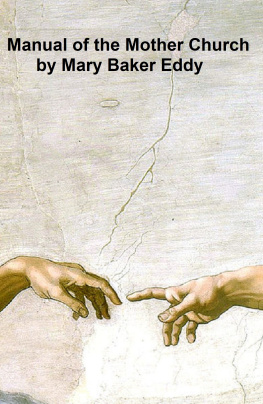
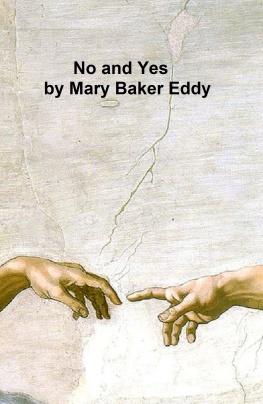
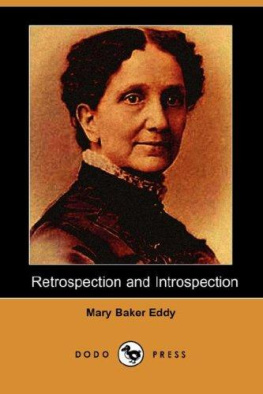
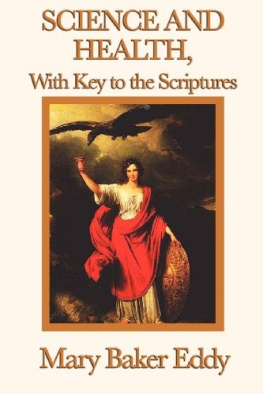
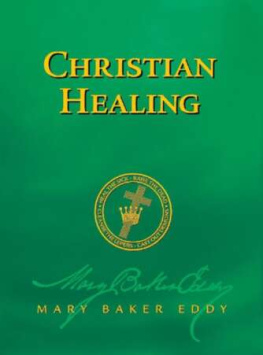
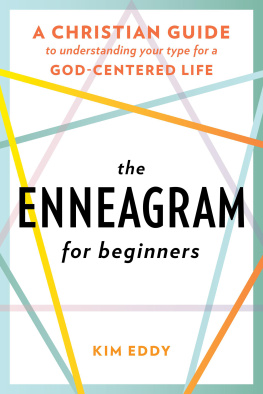
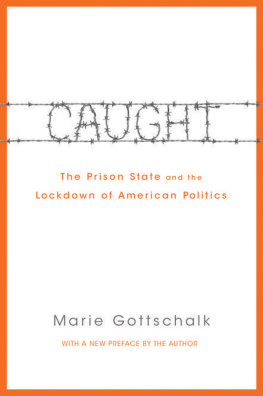
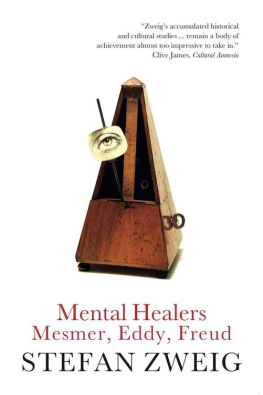
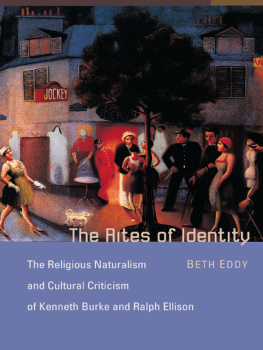
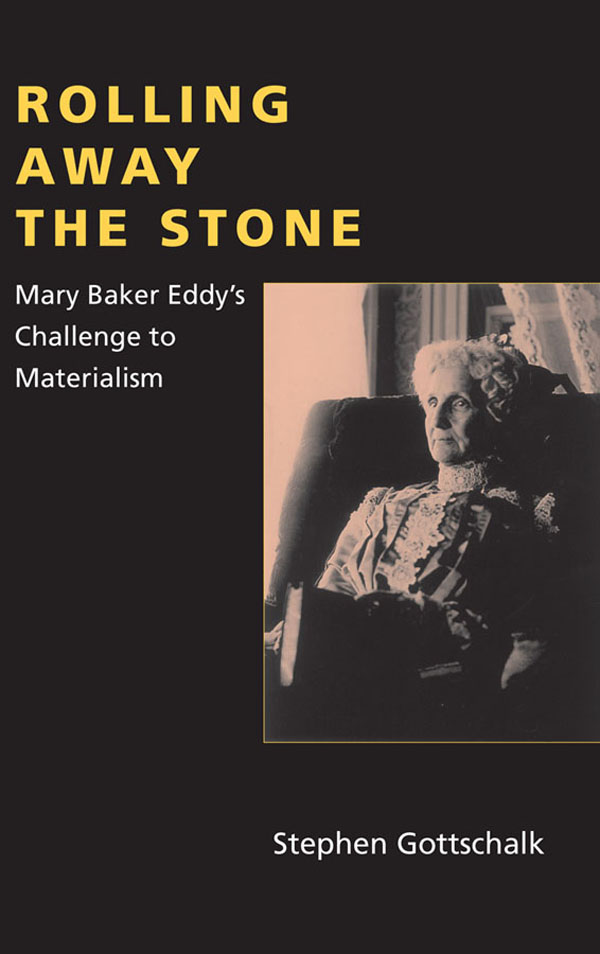

 The paper used in this publication meets the minimum requirements of the American National Standard for Information
The paper used in this publication meets the minimum requirements of the American National Standard for Information